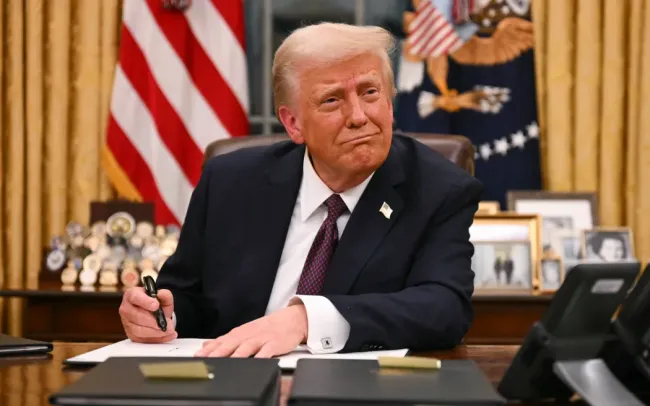From Wong Kim Ark to Trump: The Battle Over Birthright Citizenship and Its San Francisco Chinatown Origins
As Trump moves to end birthright citizenship, a historic 1898 Supreme Court case involving a Chinatown resident reminds us of the fight for equality and the 14th Amendment's enduring legacy.
In a move both bold and divisive, President Donald Trump has reignited a century-old debate by signing an executive order to dismantle birthright citizenship—a right deeply tied to the history of San Francisco’s Chinatown. On January 21, 2025, Trump announced that children born in the United States would no longer be granted citizenship unless at least one parent is a citizen or permanent resident. This decision has sparked immediate outrage and legal challenges from 18 states, including California, as well as cities like San Francisco, where the fight for birthright citizenship began with the historic 1898 Supreme Court case United States v. Wong Kim Ark.
The Wong Kim Ark Legacy: A Victory Against Injustice
Wong Kim Ark, a cook born in San Francisco, became an unlikely champion of civil rights in 1898. After being denied reentry to the U.S. following a visit to China, Wong challenged the government, arguing that the 14th Amendment guaranteed his citizenship because he was born on American soil. In a landmark 6-2 decision, the Supreme Court upheld his claim, solidifying birthright citizenship as a constitutional right.
Now, more than a century later, Trump’s executive order threatens to undo that historic victory, undermining the very principles Wong fought to protect.
Trump’s Assault on the 14th Amendment
Trump’s executive order, titled Protecting the Meaning and Value of American Citizenship, directly challenges the Constitution. It argues that children born to undocumented immigrants or temporary visa holders are not “subject to the jurisdiction” of the United States, twisting the 14th Amendment’s language to justify stripping citizenship from thousands of children born each year.
If implemented, this policy would render approximately 153,000 children stateless annually, exposing them to lifelong vulnerability.
California Attorney General Rob Bonta, himself the son of an immigrant mother, denounced the order as “unconstitutional, un-American, and a direct attack on our values.” He emphasized California’s unique role in this fight, noting that it was the home of Wong Kim Ark’s landmark case.
Legal Challenges and Historical Echoes
Within hours of Trump’s announcement, 18 states, led by California, filed a federal lawsuit in Massachusetts, accusing the order of overstepping presidential authority. The lawsuit warns of dire consequences, including the creation of a stateless underclass and the loss of federal funding for essential programs like Medicaid.
The case draws clear parallels to Wong Kim Ark’s legal battle, which unfolded against the backdrop of widespread anti-Chinese discrimination. Wong’s great-grandson, Norman Wong, criticized Trump’s order as “a desperate attempt to divide the country and scapegoat immigrants.”
The Human Impact
If enforced, Trump’s policy would devastate millions of families, particularly in immigrant-heavy states like California, Texas, and New York. Experts warn of significant harm to children, as well as strain on state resources, which would be forced to address the needs of stateless residents without federal support.
A Renewed Fight for Justice
Organizations like San Francisco’s Chinese Consolidated Benevolent Association, which supported Wong Kim Ark’s case over 125 years ago, are ready to mobilize. “Trump can try to take away our rights, but we won’t let him,” declared Larry Yee, a leader of the association. “Birthright citizenship is not just a civil right—it’s an economic and human right. We will defend it with everything we have.”
Wong Kim Ark’s story is a reminder that rights are never guaranteed; they must be defended. As Norman Wong poignantly stated, “We will build the world we’re willing to fight for.”
The courts will ultimately decide the fate of Trump’s order, but one thing is certain: this is a defining battle for the nation’s soul. With its origins in San Francisco’s Chinatown, the fight for birthright citizenship is far from over. Trump may have started this war, but the resistance is ready to meet the challenge.
